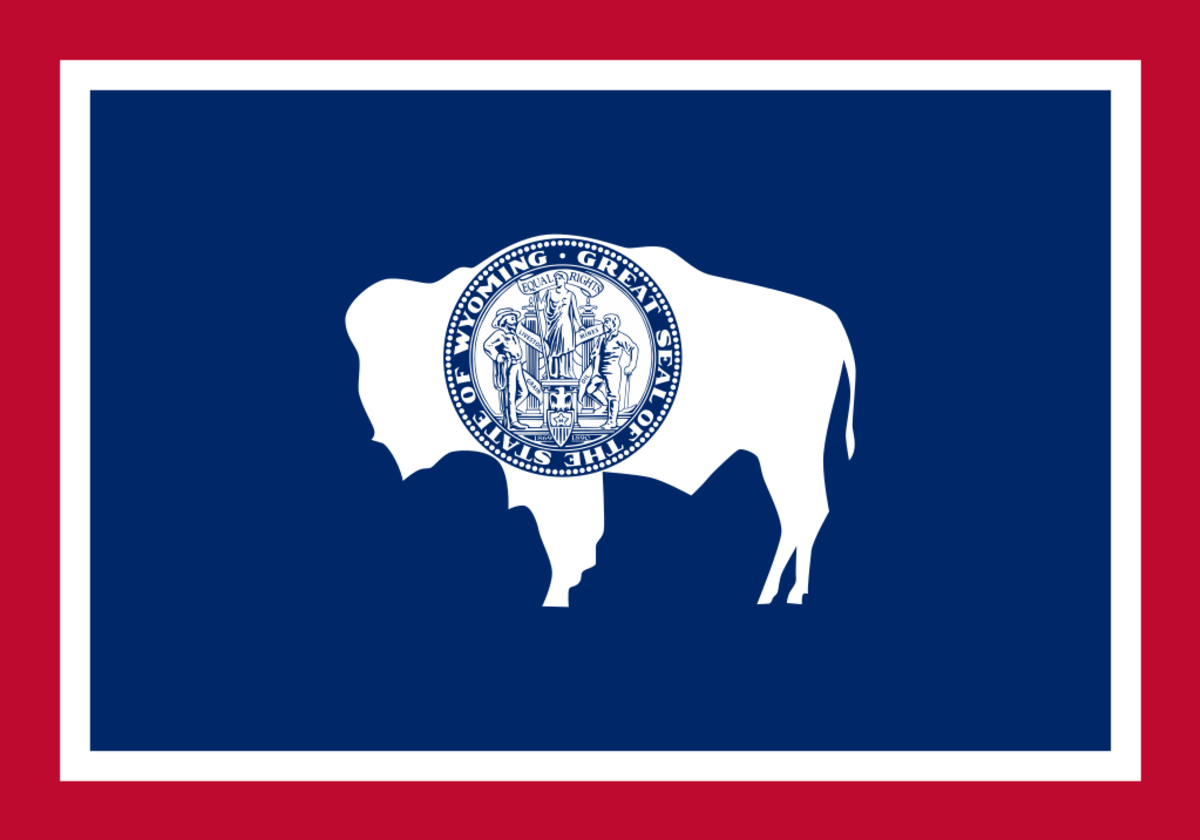From 2016 to 2021, the Wyoming Department of Transportation (WYDOT) recorded 8,974 crashes involving commercial motor vehicle drivers in the state, 7,239 of which were property-damage-only, 1,617 were injury crashes, and 118 were fatal crashes. In 2021 alone, Wyoming lost 13 lives and saw 359 injured individuals following truck accidents. Meanwhile, based on the analysis of the National Highway Traffic Safety Administration's (NHTSA) Fatality Analysis Reporting System (FARS) data by the National Safety Council, Wyoming is among the states with the highest percentage of large trucks involved in fatal crashes in 2020, recording 19%.
Several analyses of accident data from previous years have shown that Interstate 80 and US 287, which run along Laramie County, are among the most dangerous highways in Wyoming. A 2020 report by WYDOT revealed that Laramie recorded the highest number of crashes, with 1,900. It was followed by other counties like Natrona, Sweetwater, and Campbell, each surpassing the 1,000 mark. The majority of personal injury law firms in the state list distracted driving, drowsy driving, intoxicated driving, speeding, overloading, and inadequate training as some of the leading causes of truck accidents in Wyoming.
The Wyoming government has enacted laws, alongside the regulations implemented by the FMCSA, to restrict unsafe driving behaviors and eliminate accidents, injuries, and fatalities involving commercial motor vehicles and trucks. This article discusses some federal and state laws governing the trucking industry. It also goes through some pertinent information on the minimum insurance requirements and accident liability guidelines for Wyoming truck operators, trucking companies, crash victims, and accident plaintiffs.
Wyoming Fatigued Driving Laws and FMCSA Hours of Service Regulations
Drowsy driving is one of the leading causes of truck accidents in the country. The Insurance Institute for Highway Safety (IIHS) conducted a study and found that truckers who work for over eight hours are twice as likely to crash. According to the FMCSA, fatigued driving is a contributing factor in around 13% of all of the country's large truck crashes. The Governors Highway Safety Association (GHSA) also estimated that tired drivers were involved in about 10% to 20% of accidents. The alarming statistics have prompted the FMCSA to issue and enforce federal hours-of-service (HOS) regulations for property- and passenger-carrying commercial motor vehicle drivers to minimize collisions, injuries, and deaths involving large trucks and buses. Wyoming follows these federal regulations, as there are no state laws that expressly address drivers who drive drowsy and subsequently injure or kill someone.
The table shows the hours-of-service rules for property-carrying commercial motor vehicle drivers.
Another FMCSA research found that company pressure on drivers and dispatchers influences fatigue. Truck drivers and trucking companies who breach HOS standards may be held liable for any injuries or deaths that occur in an accident as a result of their negligence. Victims may be entitled to compensation if the truck driver caused the accident after exceeding the time limit set by federal rules.
Wyoming Drunk Driving and Implied Consent Laws
Drunk driving is prohibited in Wyoming. CMV drivers who exceed the state's legal blood alcohol content (BAC) limit of 0.04% while driving may face penalties such as driver license suspension or revocation, fines, and imprisonment. According to the NHTSA, intoxication impairs perception and judgment, affects memory, and makes it difficult to maintain speed, all of which can lead to accidents. The Wyoming Department of Transportation (WYDOT) also warned that when a driver's BAC increases, so does the danger of a deadly crash. Figures from the department revealed that 4,145 crashes involving drivers under the influence of alcohol or drugs were reported in the state between 2017 and 2021. Zutobi, an online driver education resource, ranked Wyoming as the third state with the highest rate of drunk drivers in the US in terms of DUI arrests and fatalities.
Furthermore, Wyoming enacted the implied consent legislation. Under the statute, individuals operating a vehicle on a Wyoming highway are deemed to have given consent to a blood, breath, or urine test. CMV drivers can be disqualified from commercial operation for a year if they unlawfully refuse a chemical test.
Wyoming Distracted Driving Laws
Wyoming has enacted a distracted driving law prohibiting every motorist from using their cell phones, especially to read or send a text message while operating a vehicle. The state follows primary enforcement of the law, which means a police officer can pull a driver over if they see them violating state distracted driving legislation. The cities of Cheyenne and Powell have implemented additional regulations that restrict the use of handheld devices, requiring motorists to put their phones down while entering city limits.
The NHTSA has indicated that texting is the most alarming type of distraction since it takes a driver's eyes off the road for five seconds. Authorities from the organization say texting while driving at 55 mph is equivalent to traveling a whole football field with the driver's eyes closed. Statistics released by WYDOT showed that 1,825 distracted driving accidents occurred in 2020 and 2021. Road users harmed due to the negligence of distracted truck drivers may lodge claims or lawsuits to recover compensation for their damages.
Wyoming Improper Loading Regulations
Improper loading and overloading are two of the most prevalent causes of truck accidents in Wyoming, and they can result in traumatic brain injuries, neck injuries, lacerations, broken bones, and even deaths. The FMCSA's commodity-specific securement regulations apply to property-carrying CMV operators in the state. Under the rules, the loaders must ensure that all cargo items are equally distributed inside the trailer, adequately fastened, and within the permissible weight to prevent the truck from tipping over on a turn or experiencing brake failure while heading downhill. Truck drivers, trucking companies, and third-party cargo loaders may be held accountable for truck accidents that result from improper loading or overloading.
Wyoming Speeding Laws
Wyoming enforces the basic speeding law, wherein all motorists, including CMV drivers, must always drive at a safe speed. Vehicle operators are required to adjust to traffic, light, and weather conditions. For example, driving at 55 mph may be safe on a normal, sunny day. However, going 55 mph in heavy rain or foggy conditions could be dangerous and result in a violation of the basic speeding law.
Truck drivers will also be violating the state's absolute speed limits if they exceed the speed limits posted in the table below.
A speeding violation in the state can lead to a reckless driving conviction. Drivers may also be convicted of homicide by vehicle if their speeding offense kills another. WYDOT figures show that between 2017 and 2021, more than 14,000 crashes resulted from speeding. Of the total number of accidents, 260 were fatalities, while 4,619 were injuries. Victims of speeding drivers may initiate a claim or lawsuit against the careless driver to secure compensation for their recovery.
Wyoming Commercial Trucking Insurance Requirements
Wyoming mandates all personal and commercial vehicle operators to get a minimum auto liability insurance coverage. They are also obliged to bring proof of financial responsibility whenever they are driving their vehicles. Commercial motor vehicle drivers involved in interstate travel are also governed by the federal insurance regulations set by the FMCSA, which require them to have public liability insurance to safeguard themselves and the public from accidents. The table below shows the insurance requirements:
Insurance premiums for operators of a truck fleet are based on a few factors, including the following:
Vehicle type and value
Level of risk involved
Claims history
Staff driving records
Policy limits and deductibles
The US Department of Transportation and the Wyoming state government also require insurance agents or providers of trucking companies to submit the necessary liability and cargo insurance forms within the deadline before trucking businesses are authorized to operate. The required filings vary, depending on the types of registrations involved. Applicants may visit the official website of the FMCSA for additional information about the insurance filing requirements.
How Much Someone Can Sue For a Truck Accident in Wyoming
Victims of Wyoming truck accidents may be able to recover millions of dollars in personal injury and/or property damage settlements, particularly if the impact or outcomes of the crash are catastrophic. In truck accidents, the truck driver, trucking business, cargo loader, mechanic, manufacturer of faulty components, the government entity in charge of road maintenance, or another vehicle operator on the road may be at fault. Every settlement is calculated using several parameters. These include the injuries or deaths suffered, the insurance policy limits, and the distribution of liability among those involved.
Seeking the advice of a truck accident lawyer can aid a claimant determine how much compensation they may be entitled to. Legal professionals can help victims in determining the current and future costs of their medical treatments and rehabilitation therapies. They also build a case against the at-fault parties, investigate and collect evidence to prove their wrongdoing and ensure the victims receive compensation for lost wages and pain and suffering.
Wyoming Statute of Limitations for Truck Accidents
Individuals who have been hurt or whose property has been damaged in a Wyoming truck accident have four years from the date of the accident to initiate a personal injury lawsuit or claim against the at-fault party or parties. Families of victims killed in truck accidents have two years from the date of the victim's death to file a wrongful death claim against the defendant.
Wyoming Is an At-Fault State for Insurance Claims
When it comes to financial responsibility for damages resulting from accidents, especially crashes involving commercial motor vehicles, Wyoming follows a fault-based structure. Under this rule, the liable party for the accident will be responsible for the funding of the treatment of injuries and the repair of vehicle damage, as well as for the victim's lost wages, using their insurance policy. Therefore, victims can seek compensation by filing a third-party claim with the at-fault driver's insurance company. In cases where the defendant is uninsured, plaintiffs can file a personal injury lawsuit against the liable party. Additionally, victims can lodge a claim with their insurer for reimbursement of hospital fees and other out-of-pocket expenses.
Wyoming Is a Modified Comparative Fault State for Trucking Accident Lawsuits
Wyoming follows a modified comparative fault rule in cases of truck accidents. According to state law, individuals who sustained injuries, lost a loved one, or had their property damaged can file a lawsuit or claim against the at-fault driver or its insurance to recover compensation for their losses. To be reimbursed, however, their level of liability in the accident must be less than that of the other person or parties involved. Claimants judged to be 50% or more at fault for the collision will not be compensated by the defendant.
Average Settlement for Wyoming Trucking Accident Lawsuits
Under Wyoming's modified comparative fault system, truck accident victims who bring a claim against a driver or a trucking company will only receive compensation based on their share of liability in the accident. State law prohibits any limits on damages, but the amount a claimant may collect is limited by the state’s comparative negligence statute. For example, if a judge or jury concludes that the total bodily injury and property damage award for a victim found to be 40% at fault for the crash is $1,500,000, the claimant will receive just 60% of that amount, or $900,000.
Claimants should seek a skilled and compassionate personal injury attorney to demonstrate that the defendant was at fault for the accident. There are law firms and truck accident attorneys who work on a contingency basis. Clients will not have to pay legal fees in a contingency fee arrangement until their lawyer achieves a financial settlement on their behalf.
Legal Resources for Wyoming Trucking Accident Victims
Wyoming State Bar Lawyer Referral Directory
The Wyoming State Bar promotes the delivery of high-quality legal services to the public. It gives citizens in need of legal assistance a directory where they can locate the right lawyer to assist them with their legal problems. A referral can be requested using an online referral request form. The organization's lawyer referral coordinator will review each referral request. One of their staff will refer and contact the applicant through email within one or two business days.
Legal Aid of Wyoming
Legal Aid of Wyoming is a federally sponsored, nonprofit law office that provides free legal services to low-income Wyoming residents. It provides counsel in a wide range of civil cases. By visiting their frequently asked questions page, people can learn more about the legal issues the group addresses, the eligibility standards, and resources for those who do not qualify.
Equal Justice Wyoming
Equal Justice Wyoming, formerly the Wyoming Center for Legal Aid, is a judicial branch entity established in April 2011 by the Wyoming Supreme Court. It connects income-eligible citizens with legal services and resources. It also helps them identify methods to handle their legal issues.
Wyoming.StateRecords.org
This platform is for Wyoming residents who want fast access to county, municipal, and state public documents and court records. State courts make public files in cases docketed in the Supreme Court available to the public through its public docket tool, which allows users to see and download court orders, notices, and appeal briefs. Users can look up case information using a case number, party details, or issue dates.
Requesting Crash Reports
People involved in commercial motor vehicle or truck accidents may request a crash report by contacting Highway Safety with the following information: case number, name of person involved, date of crash, email address, and phone number. Applicants may contact the department at 307-777-4450 to make a request or get more information. There is a $3.00 charge for crash reports, plus a $2.50 service fee for credit card users.
Step into the world of Expertise.com, your go-to hub for credible insights. We don't take accuracy lightly around here. Our squad of expert reviewers, each a maestro in their field, has given the green light to every single article you'll find. From rigorous fact-checking to meticulous evaluations of service providers, we've got it all covered. So feel free to dive in and explore. The information you'll uncover has been stamped with the seal of approval by our top-notch experts.





